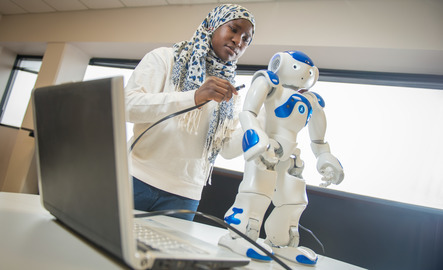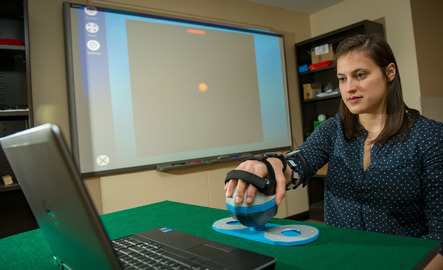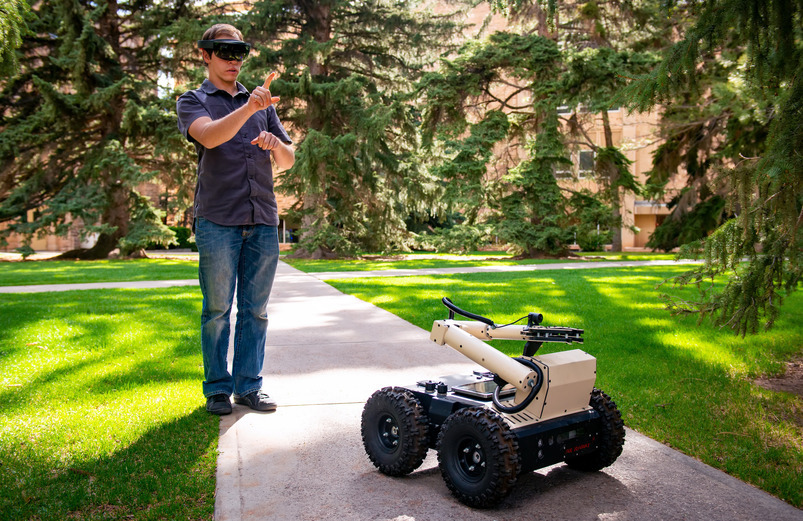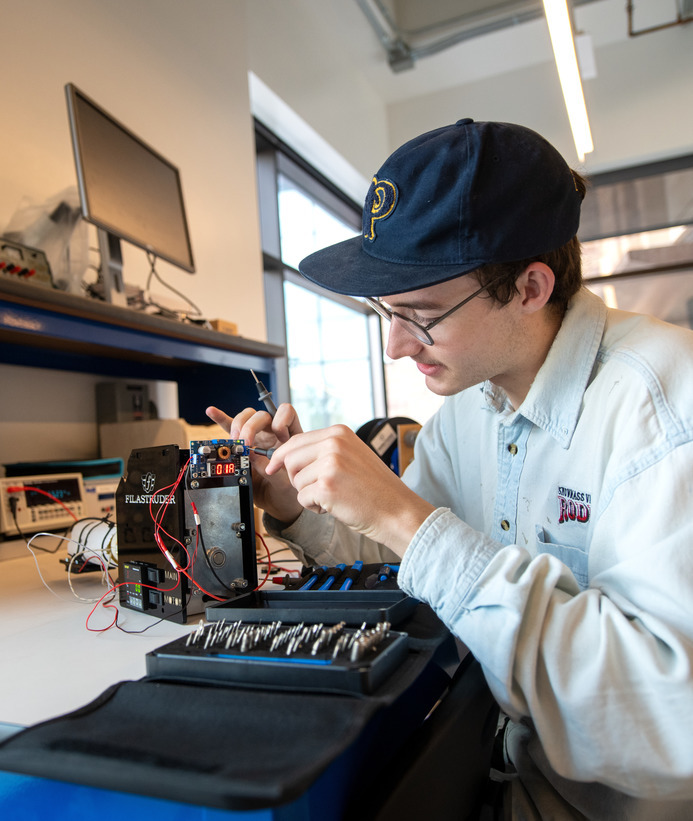About Electrical Engineering at UW
In our collaborative graduate electrical engineering program, you will have the chance
to customize your experience with a series of concentrations that will expose you
to the up-to-the-minute and upcoming technologies shaping the world.
Our faculty are active researchers, working on pioneering projects that are changing
health care, improving mobility for people with physical disabilities and accelerating
the speed of computer processing. And, they are making these advances in concert with
the students in their labs and research groups.
The electrical engineering coursework, research and projects you'll complete as a
UW electrical engineering M.S. student prepare you to pursue a career that can make
the world a safer more accessible place.

Customize your degree by selecting a degree concentration in one of these areas:
- Bio-Engineering
- Controls
- Electrical Energy Systems
- Electronic Systems and Devices
- Robotics
- Signal Processing and Computer Networks

What Can You Do With an Electrical Engineering Master's Degree?
With a master’s in electrical engineering, you’ll open the door to exciting, high-level roles in fields like robotics, energy and tech. It’s a great way to deepen your expertise, lead innovative projects and stand out in a competitive job market!
- Electrical Engineer
- Systems Engineer
- Power Systems Engineer
- Control Systems Engineer
- Electronics Design Engineer
- Embedded Systems Engineer
- Robotics Engineer
- Signal Processing Engineer
- Radio Frequency Engineer
- Automation Engineer
- Hardware Engineer
- Firmware Engineer
- Research and Development Specialist
- Project Manager
- Aerospace Engineer
- Communications Systems Engineer
- Energy Systems Engineer
- AI/ML Engineer
- Semiconductor Engineer
- Product Development Engineer
- Director of Engineering, Systems Validation at Intel
- Software/Electrical Engineer, Engineering Propulsion Laboratory at Lockheed Martin Space Systems Company
- Engineer at Micron Technology
- ASIC Engineer at Facebook
- Engineer for the U.S. Army
- Electrical Engineer at Gogo Business Aviation
- Principal Electrical Engineer at Fossil Group, Inc.
- Senior Design Engineer at Avago Technologies
Yes, earning a master’s degree can definitely help you stand out in the competitive field of electrical engineering. It shows advanced expertise, opens doors to higher-level roles, and can lead to better job prospects, higher pay and opportunities to work on cutting-edge projects.
With a master’s in electrical engineering, you’ll find opportunities in a wide variety of industries—tech, aerospace, renewable energy, robotics, telecom and more. These fields are looking for people with advanced skills to help lead innovation and tackle complex challenges.
UW Electrical Engineering Graduate Students Making A Real Impact
As a graduate student, Bradley Riotto, M.S. '19, helped build an FDA-approved augmented-reality system that today is enabling doctors to more easily perform ultrasound-guided surgical injections. Riotto currently works as a Software Engineering Lead at SFL Scientific, a Deloitte Business.

“I worked with some of the best professors in the trade and learned a lot of basics of electrical engineering from them. It's what got me my first break. If it wasn't for [my education at] Wyoming, I would not be doing the kind of work I do today."
- Punit Soni | Electrical Engineering M.S. '00


